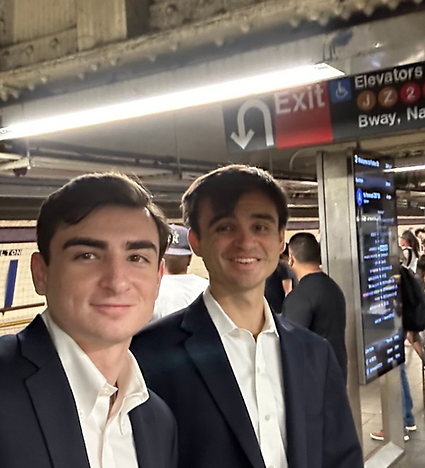The UChicago Brothers - Thomas and Mark
About Us:
We are brothers, Mark and Thomas O’Shea, and together we bring a blend of practical finance experience and quantitative expertise. Both of us studied at the University of Chicago, where Thomas earned a degree in Economics with a specialization in Business Economics (Class of 2023) and Mark recently completed degrees in Mathematics, Statistics, and Economics (Class of 2025).
Thomas gained hands-on experience through internships in corporate finance, venture capital, and asset management, including at United Airlines’s corporate headquarters and at North Star Investment Management, a Chicago-based mutual fund managing over $2 billion in assets. There, he learned the principles of fundamental and technical analysis, engaged with executives from publicly listed companies, and learned about the drivers of corporate performance. In his first year investing independently, Thomas achieved a 42% annualized return, supported by a new investment framework he developed that integrates political risk and the enduring strength of large-cap companies with durable consumer brands.
Mark contributes a deep quantitative skill set that complements this approach, enabling rigorous analysis and model-driven insights. Together, our team combines grounded financial training, proven results, and a strong commitment to service — shaped by years of volunteering in the DC area — to deliver disciplined, value-conscious investment management.

Us on the NYC Subway together
Some Examples of our Stock Picks:
Microsoft - 20.58%
-
A company with unequivocal dominance in the commercial enterprise data management space
-
Has the second largest cloud platform globally behind only that of AWS
-
Has a healthy balance sheet with over 60% of its revenue being subscription-based with a dominant brand
-
Is leading AI efforts in the commercial enterprise data management space with rollout of the Cloud Pilot program and with investment in OpenAI
American Express - 37.76%
-
A strong consumer brand value
-
A fee-driven model with ownership of both the card issuance and the payment network
-
A solid balance sheet with consistent dividend growth
-
Bill Ackman has invested in American Express to a significant extent over the years